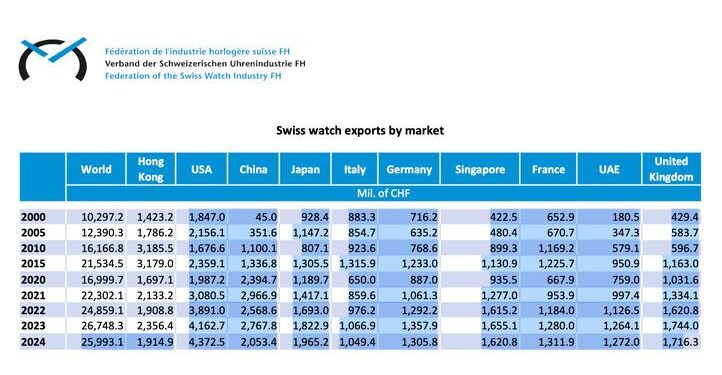Switzerland is grappling with the fallout from a sweeping 39% tariff imposed by the United States, sending shockwaves through its export-driven economy. The unprecedented tariff hike, targeting key Swiss goods, has ignited concerns among industry leaders and policymakers alike. Amid the turmoil, one economist suggests this development signals a broader shift in global trade dynamics, arguing that America is no longer the dominant market it once was. As Switzerland seeks to navigate the new economic landscape, questions emerge about the long-term implications for transatlantic commerce and the future of U.S. trade policy.
Switzerland Faces Economic Uncertainty Amid Sudden 39 Percent Trump Tariffs
Switzerland’s export-driven economy is grappling with the shock of a sudden 39% tariff increase imposed by the United States, sparking widespread concern across key sectors. Swiss manufacturers, especially those specializing in precision machinery and pharmaceuticals, are now forced to reevaluate their supply chains and market strategies to offset the impact. Industry leaders warn that this unexpected barrier could lead to rising costs for American consumers and dampen Switzerland’s export momentum, which has long been a pillar of its robust economic performance.
Economic experts emphasize several critical points:
- The U.S. market, historically Switzerland’s largest export destination, may be losing prominence amid shifting global trade alliances.
- Companies may accelerate diversification efforts toward emerging markets and regional trade agreements.
- Strategic investments in innovation and digital transformation are seen as vital to maintaining competitiveness.
| Sector | Impact | Response |
|---|---|---|
| Pharmaceuticals | Moderate | Boost R&D for alternative markets |
| Machinery | High | Adjust supply chains, increase local partnerships |
| Luxury Goods | Low | Focus on brand strength in Asia |
Expert Analysis Explores Shifting Global Trade Dynamics and Reduced US Market Influence
Recent shifts in global trade patterns signal a transformative period where the United States is no longer the dominant commercial titan it once was. An expert analysis reveals that the imposition of a 39% tariff on Swiss exports under Trump-era policies has rattled long-standing trade relationships and forced businesses to rethink their strategies. The US market, traditionally viewed as the prime destination for exports, is now losing its allure as competing regions and emerging economies rapidly expand their influence on the international stage.
Key factors driving this change include:
- Strengthening trade alliances within Asia and Europe, creating alternative hubs for Swiss goods.
- Rising production costs in the US affecting pricing competitiveness.
- Increased focus on regional trade agreements over global free markets.
| Region | Trade Growth (2023) | Market Share Change |
|---|---|---|
| Asia-Pacific | 12% | +4% |
| Europe | 7% | +2% |
| United States | 1.5% | -3% |
Strategic Recommendations for Swiss Exporters to Adapt and Diversify Markets
Swiss exporters are now compelled to reassess their reliance on the American market, which has historically been a primary destination for Swiss goods. With tariffs surging to 39%, businesses should proactively seek alternative markets, especially in regions demonstrating resilience and growth potential. Expanding into Asia-Pacific, particularly China, Japan, and Southeast Asia, presents promising opportunities due to increasing consumer demand and ongoing trade agreements that foster lower tariff barriers.
Diversification strategies must incorporate both product adaptation and deeper market research. Embracing digital platforms for cross-border e-commerce, and forging regional partnerships can mitigate risk and enhance presence in emerging markets. The following table summarizes key growth sectors and targeted regions for Swiss exporters:
| Sector | Preferred Markets | Strategic Focus |
|---|---|---|
| Pharmaceuticals | Asia-Pacific, Middle East | Regulatory compliance, local partnerships |
| Machinery & Tools | South America, Africa | After-sales service, customized solutions |
| Luxury Goods | China, UAE, India | Brand localization, influencer marketing |
Ultimately, Swiss exporters must adopt a flexible approach that emphasizes market intelligence, product innovation, and agile logistics in order to thrive beyond the American tariff shock. Policymakers and trade bodies can support this transition by facilitating access to new markets and providing export risk management tools.
The Way Forward
As Switzerland grapples with the unexpected 39% tariffs imposed by the United States, the move underscores a shifting landscape in global trade relations. Economists suggest that America’s diminished role as the dominant market signals a need for Swiss exporters to diversify and adapt to evolving economic realities. The recent developments mark a pivotal moment, prompting businesses and policymakers alike to reassess strategies in an increasingly complex international marketplace.
















